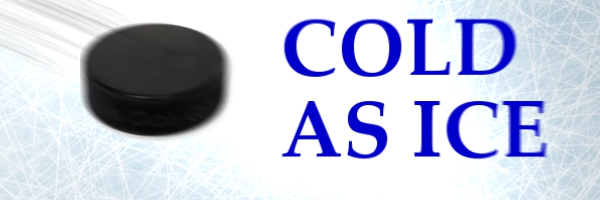Our worst fears as hockey fans have come true: the looming NHL lockout has become a real NHL lockout. Faithful hockey nuts Stephen and Jay return for a new season of Cold as Ice with their thoughts on the ordeal.
Stephen
A part of me wants to imagine that Gary Bettman has at least picked up the fiddle as he sits around watching the NHL burn this time. To his credit, the man has turned the NHL into a multi-billion dollar industry, mostly by getting it further entrenched in the far more cash-filled US market at the expense of classic Canadian teams. But that giant pie has once again become the root of a lockout – his fourth dispute and third lockout since taking the helm. And if the inflexibility continues, we may miss the second NHL season in a decade.
It’s been a year of labor unrest, to be sure. The NBA lost half a season in 2011, beginning on Christmas Day, but managed to bounce back fine, and the NFL, possibly aware of how much money was at stake for everyone, got things sorted before a single regular season game was lost. But something about Bettman’s reputation and posture so far makes me less optimistic that things will be resolved.
At stake, as always, is how much exactly the players should get of the total revenues of the league. Players currently receive 57% of hockey related revenue, a number far higher than team owners would like. How exactly to change the percentage, however, has to be decided. The players plan would see the percentage drop to 52% by 2015-16, but rise back to 54% for 2016-18 (assuming a fixed 7% annual growth that went to owners). They also promoted a fixed salary cap and a revenue sharing model that helped lower revenue teams. The owners, meanwhile, want to use current HRR figures and cut players to 49% for this season and dropping to 47% by 2018 by use of salary caps linked to revenue. These are two wildly different offers, of course, and neither side likes the initial terms. So it’s time for compromise.
But will there be any? A number of players, including superstars like Sidney Crosby, have already signed contracts with European leagues for the duration of the lockout and the veterans like Jerome Iginla have stated they’ll happily lose a season to get a fair deal. Further difficult is the fact that the players already accepted a salary cap and a 24% salary rollback just seven years ago, and many feel that having to bear the responsibility for struggling small-market teams yet again (at least one established by Bettman’s aggressive American relocation of Canadian teams) is unfair. Bettman, meanwhile, has been notorious for his “take it or leave it” mentality, and the players have already made clear they prefer the latter. There’s going to have to be some give on his end too, and while I hope it won’t take an entire year off for him to realize that, I’m not optimistic.
It doesn’t help, too, that Bettman has a notorious reputation for being all about business with little love or knowledge of the sport he oversees. One myth surround him is that upon leaving the NBA for the NHL, he was gifted a hockey puck, which he spent the entire day trying to open as if it were a container. I highly doubt it’s true, but the story still circulates to the day, resonating with fans who view Bettman as an aloof businessman and not a true hockey figure.
In my mind, best case scenario is the league kicks off with the Mid-Winter Classic on New Year’s Day. Worst case? NHL fans better start following European leagues or be content to simulate the 2013 season on their Playstations.
Jay
If there’s one thing that history has shown us, it’s that the NHL always seems to bounce back from these idiotic work stoppages. The 1994 lockout, coming on the heels of the Rangers’ historic Cup win and the league’s highest visibility in quite some time, was incredibly poorly timed and cost half a season, but it didn’t hurt attendance. And then the 2004-05 lockout wiped out an entire season, and fans vowed to punish the league where it counted, but the following season, most arenas were packed again.
The argument that the players are multimillionaires who in these tough economic times don’t deserve anyone’s sympathy certainly holds water, although I would also argue that the owners are the ones who doled out those big contracts and put themselves in the situation they’re in despite having a salary cap. Last time around, the players compromised and accepted a salary cap they didn’t want, and they’ve said they’re willing to give some of the revenues back, but the owners are playing hardball.
This week the league cancelled preseason games through Sept. 30 and some of the NHL’s best players have started signing deals to play overseas. There was even word that Alex Ovechkin, who signed with the KHL’s Dynamo Moscow, may not return to the NHL if he doesn’t find the new agreement to his liking. Players like Joe Thornton, Rick Nash, Pavel Datsyuk, Evgeni Malkin and Jason Spezza have all agreed to play for European teams during the lockout. And the NHL itself announced that it would limit its employees to four-day work weeks. These are dark days indeed.
I’m a huge NHL fan, but during the last lockout, I survived. I attended a few more college hockey games, I watched more football, and I probably read and wrote and played with my kids more. As much as I’ll miss another season of futility for my Maple Leafs (who since the last lockout haven’t made the playoffs), I suspect I’ll be just fine.

